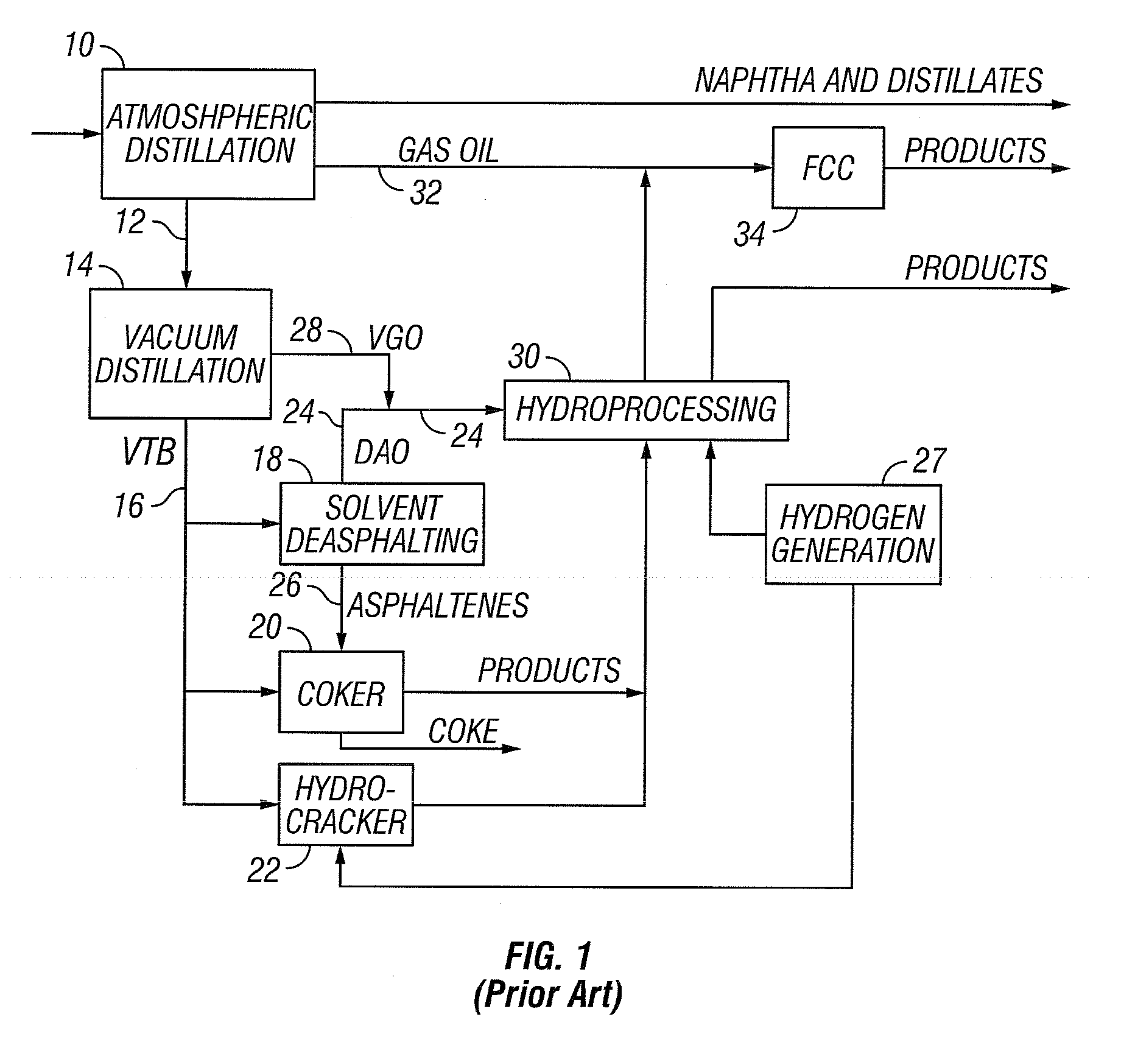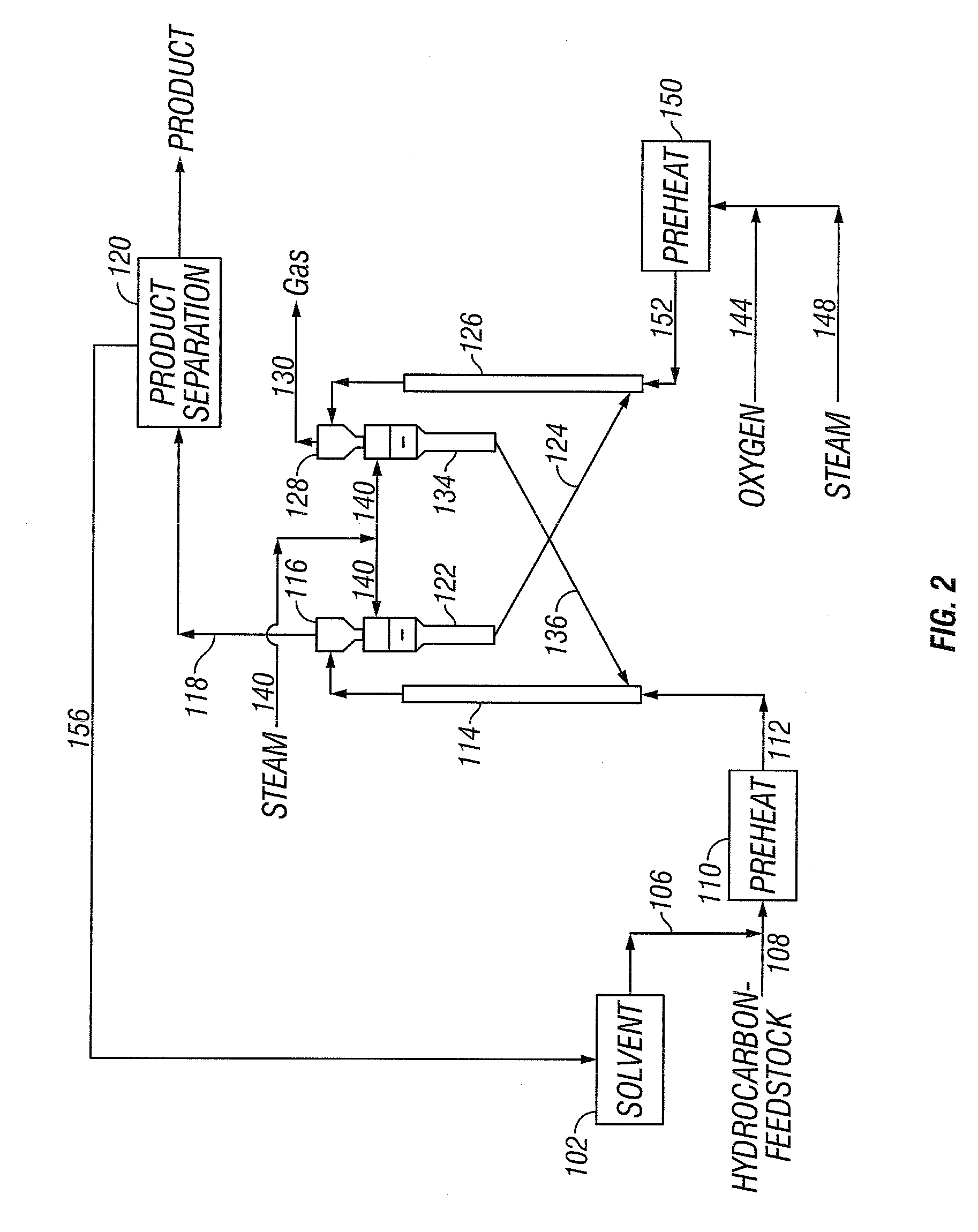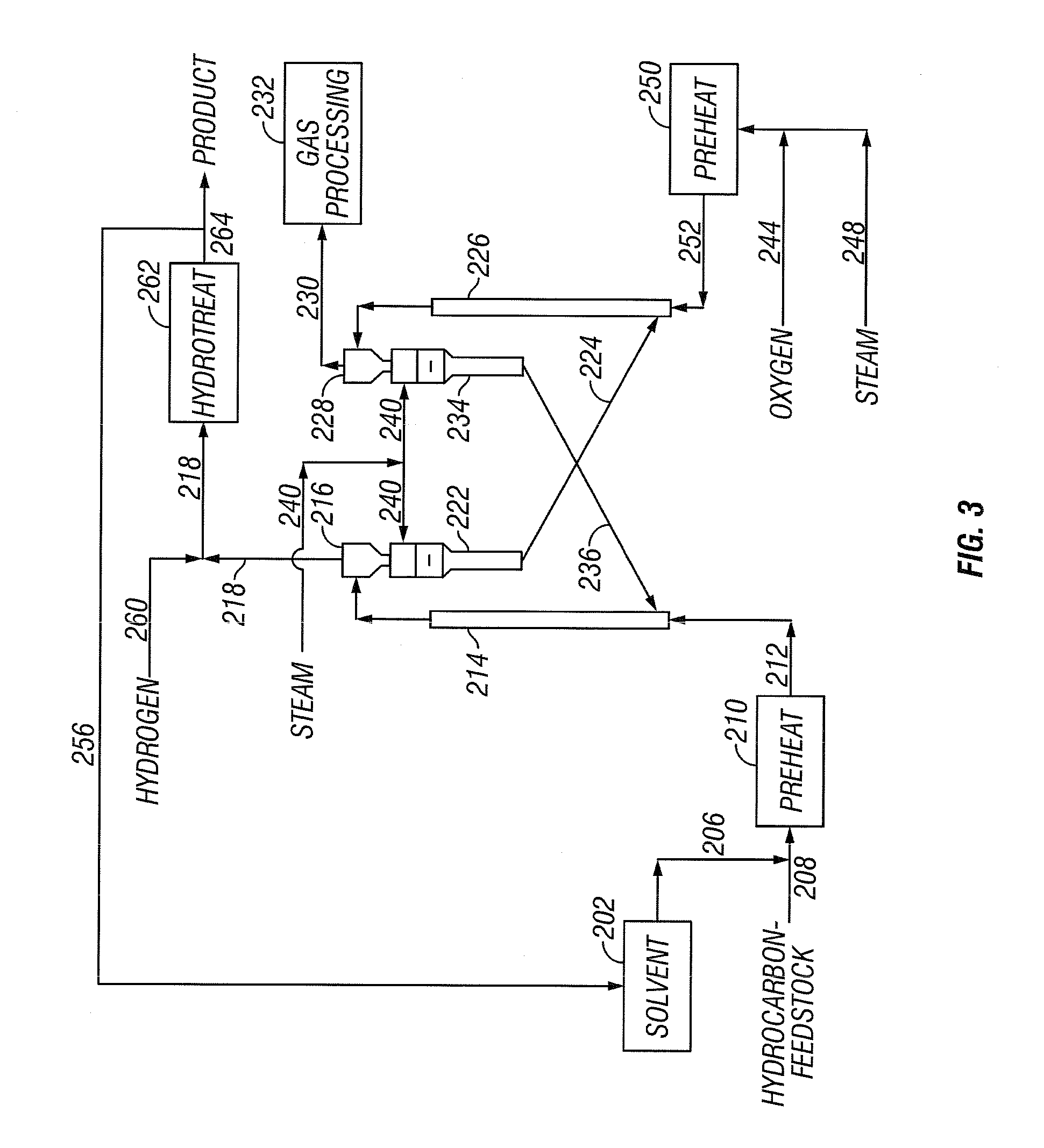Supercritical Hydrocarbon Conversion Process
a hydrocarbon conversion and supercritical technology, applied in the direction of hydrocarbon oil cracking process, thermal non-catalytic cracking, cadmium sulfide, etc., can solve the problems of incomplete conversion of high molecular weight compounds and difficult processing
- Summary
- Abstract
- Description
- Claims
- Application Information
AI Technical Summary
Benefits of technology
Problems solved by technology
Method used
Image
Examples
Embodiment Construction
[0040] The present invention addresses the processing of petroleum and hydrocarbons from other feedstock sources, desirably its fractions and similar materials containing hydrocarbons having boiling points greater than 538° C. (1000° F.), using supercritical conversion with a hydrocarbon or mixture of hydrocarbons as the solvating medium for the high boiling hydrocarbon feed. The conversion occurs in a reaction zone at a temperature above the critical temperature of the hydrocarbon feedstock-solvent mixture, which can be estimated by employing conventional equation of state calculations. The desired reaction temperature can be achieved by simultaneously introducing the solvent-feed mixture and the hot particulates into the reaction zone, wherein the feedstock-solvent mixture is preheated to a temperature below the desired reaction temperature to avoid premature coking, and the hot particulates initially are at a temperature considerably above the desired reaction temperature, such t...
PUM
 Login to View More
Login to View More Abstract
Description
Claims
Application Information
 Login to View More
Login to View More - R&D
- Intellectual Property
- Life Sciences
- Materials
- Tech Scout
- Unparalleled Data Quality
- Higher Quality Content
- 60% Fewer Hallucinations
Browse by: Latest US Patents, China's latest patents, Technical Efficacy Thesaurus, Application Domain, Technology Topic, Popular Technical Reports.
© 2025 PatSnap. All rights reserved.Legal|Privacy policy|Modern Slavery Act Transparency Statement|Sitemap|About US| Contact US: help@patsnap.com



